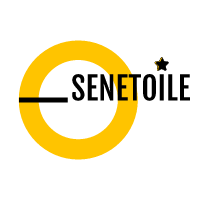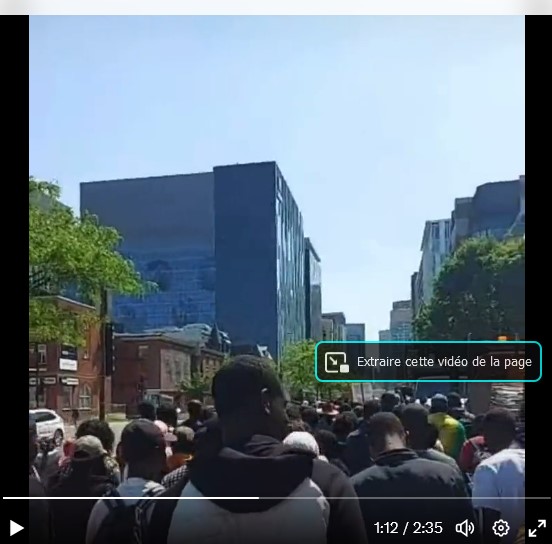Task Force Calls For International Trust To Address Gaza Crisis
Écrit par SENETOILE NEWS Task Force Calls For International Trust To Address Gaza Crisis
Task Force Calls For International Trust To Address Gaza Crisis
Task Force Calls For International Trust To Address Gaza Crisis
Task Force Calls For International Trust To Address Gaza Crisis
WASHINGTON, D.C. -- A non-partisan task force composed of former national security officials and business executives today issued a report calling for the creation of an International Trust for Gaza Relief and Reconstruction. “The Day After: A Plan For Gaza” is based on nearly 100 expert interviews and multiple trips to the Middle East. It concludes that the creation of a legally independent Trust committed to a peaceful post-Hamas Gaza offers the most realistic path for addressing the territory’s urgent humanitarian crisis and governance vacuum. The group has been briefing the plan to senior U.S. and Middle East leaders for the past eight weeks.
Convened by business leaders Steven Price and Gary Ginsberg, the non-partisan Gaza Futures Task Force was organized under the auspices of the Jewish Institute for National Security of America and The Vandenberg Coalition. Chaired by John Hannah, task force members include Elliott Abrams, Robert Danin, Eric Edelman, Gary Ginsberg, Emily Harding, Lewis Libby, and Steven Price. Their 50-page report provides a comprehensive assessment of Hamas’s October 7 attack on Israel and places the massacre in the larger context of the Iranian threat to Middle East security. After evaluating the viability of other “day after” solutions, the report’s plan calls for nations concerned about Gazans and countering Iran’s axis of terror to fund an International Trust that would promptly begin to deliver massive humanitarian and other aid to Gaza. It also includes steps to restore a political horizon for two states and progress toward a U.S.-backed regional alliance for defeating Iran and its proxies.
Supported by the United States and other nations, the Trust would be led by a group of Arab countries such as Saudi Arabia, Egypt, and the United Arab Emirates that have the greatest legitimacy, resources, and interest in assisting Gaza, advancing Middle East peace, and countering Iran. These states would establish the Trust, fund it, and appoint members to a board that would govern the Trust’s work and be closely advised by a council of Gazans from both inside and outside Gaza committed to a peaceful future. As a private entity, the Trust would offer its donors a vehicle for significantly accelerating their engagement in Gaza without directly putting their national prestige, officials, or troops on the line in a high-risk environment.
The Trust’s first priority would be addressing the most urgent humanitarian needs of the population and helping stem Gaza’s descent into chaos as Hamas’s rule unravels. This would include ensuring the secure delivery of food, water, medicines, and housing, as well as restoring services and repairing critical infrastructure. As the situation stabilizes, the Trust would work with other donor states, NGOs, and international agencies to help initiate reconstruction and generate responsible new leaders and police.
Importantly, the Trust would provide security for its operations, personnel, and local partners. Capable forces from non-regional states with close ties to Israel would be recruited, as would vetted Gazans. But if not available, the report recommends that the Trust hire private security contractors (PSCs) with good reputations among Western militaries to conduct a series of limited missions such as guarding convoys and critical infrastructure. The report notes that based on lessons from a variety of global conflicts, PSCs have proven reliable and effective when subject to strict monitoring and accountability regimes.
“Two things are essential to get to a better day after for Gaza,” said John Hannah. “First, Israel needs to succeed in dismantling Hamas’s political and military power and delivering a major blow to Iran’s proxy strategy. No less important, however, responsible states need to fill the vacuum with a viable alternative that mitigates the suffering triggered by Hamas’s attack and helps build a more hopeful future for Gaza and the Middle East. After studying many other options and finding them wanting, we believe that the most realistic option for mobilizing rapid action by the key concerned states is the creation of a private Trust.”
Renégat rouge DC
203, rue S. Union
300
Alexandrie, VA 22314
États-Unis
-
 0
0
-
 0
0
-
 0
0
-
 0
0
-
 0
0
-
 0
0
Dernier de SENETOILE NEWS
- La Chief Executive Officer (CEO) de la Fondation Merck, La Sénatrice, Dr. Rasha Kelej, célèbre la « Journée Mondiale du Diabète » en offrant sur 2080 bourses, 830 bourses pour le Diabète et l'Hypertension dans 52 pays
- Daimler Truck Middle East Africa annonce l'élargissement de ses responsabilités régionales
- Des chefs d’État, des ministres de l’Énergie, des investisseurs et des fournisseurs indépendants d’énergie se réunissent au Togo à l’occasion du West Africa Energy Cooperation Summit
- Chambre Africaine de l'Energie (AEC) félicite Trident Energy pour le succès de la production du puits intercalaire C-45, un grand pas en avant pour le secteur pétrolier et gazier de la Guinée Equatoriale
- Le Maroc et l’Estonie s’engagent à renforcer leur coopération socio-économique
Laissez un commentaire
Assurez-vous d'entrer toutes les informations requises, indiquées par un astérisque (*). Le code HTML n'est pas autorisé.







